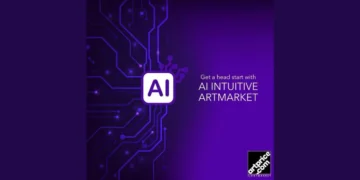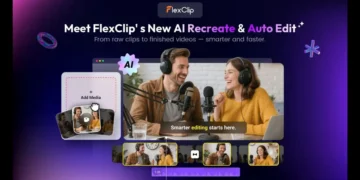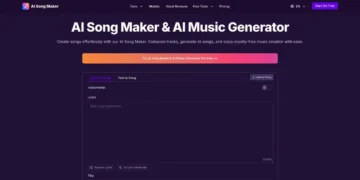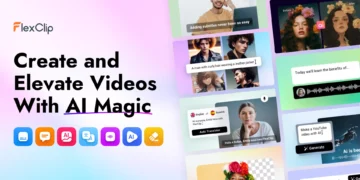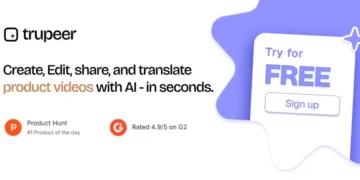A New Era of AI-Powered Innovation: The tech giants are locked in an epic battle, reminiscent of the Cold War space race, to claim the top spot in the realm of Artificial Intelligence (AI). Google and OpenAI are the two frontrunners in this race, each unveiling groundbreaking advancements that push the boundaries of what’s possible.
OpenAI’s GPT-4o: A Virtual Assistant with Emotions
Just hours before Google’s I/O 2024 event, OpenAI stole the spotlight by introducing GPT-4o, a revolutionary upgrade to their ChatGPT AI. GPT-4o boasts the ability to function as a virtual assistant, capable of expressing emotions, interpreting the intent and intonation of queries, and even solving math problems. This brings us closer to the reality depicted in the thought-provoking yet unsettling film “Her.”
Google’s Gemini Strikes Back with Enhanced Capabilities
Undeterred by OpenAI’s preemptive strike, Google delivered a powerful counterpunch at I/O 2024. The company unveiled significant updates to its Gemini AI, including Gemini 1.5 Pro and Gemma 2.
New ways @GoogleWorkspace is helping you get more done include Gemini 1.5 Pro in the Workspace side panel, new Gemini features in Gmail on mobile and more. https://t.co/uvx2gAEIC9
— Google (@Google) May 15, 2024
Gemini 1.5 Pro: Multimodal AI with Enhanced Performance
Gemini 1.5 Pro is an enhanced version of Google’s multimodal AI, now equipped with a groundbreaking 1-million-token long context window. This allows the model to process vast amounts of information, such as lengthy documents or multiple emails, with enhanced comprehension. Additionally, Gemini 1.5 Pro offers improved control over the model’s responses, enabling users to tailor its personality and style for specific use cases.
Key Features of Gemini 1.5 Pro:
Expanded Context Window: Analyze up to 1,500 pages of text or summarize 100 emails with ease.
Document Analysis: Extract insights and create personalized visualizations from uploaded documents.
Image Understanding: Generate recipes from food photos or solve math problems from images.
Natural Conversations: Engage in real-time conversations with Gemini, adapting to your pace and allowing interruptions.
Complex Activity Planning: Organize intricate plans, such as weekend getaways, with personalized recommendations.
Customizable Gems: Create personalized versions of Gemini for specific tasks, such as workout motivation or recipe suggestions.
Google App Integration: Seamlessly connect Gemini with Google Keep and Google Calendar for enhanced productivity.
Gemini 1.5 Flash: Lightweight and Efficient AI for High-Volume Tasks
Gemini 1.5 Flash is a lightweight addition to the Gemini family, designed for speed and efficiency. It’s particularly well-suited for high-volume, high-frequency tasks, making it a cost-effective solution for tasks like chat applications. Despite its smaller size, Gemini 1.5 Flash still delivers impressive multimodal reasoning capabilities, including summarization, image and video captioning, and data extraction from tables and lengthy documents.
Gemma 2: The Next Generation of Open AI Models
Google also introduced Gemma 2, the next generation of its open-source AI models. Gemma 2 boasts a new architecture designed for enhanced performance and efficiency, and it will be available in new sizes. The Gemma family is also expanding with PaliGemma, the first vision-and-language model inspired by PaLI-3. Additionally, the Responsible Generative AI Toolkit has been updated with LLM Comparator for model quality evaluation.
Imagen 3 and Veo: Empowering Creators with Content Generation
Google is committed to providing creators with tools that streamline their creative processes. To that end, the company introduced Veo, a high-definition video generation model, and Imagen 3, an enhanced text-to-image conversion system.
Veo: High-Definition Video at Your Fingertips
Veo is a cutting-edge video generation model capable of producing 1080p high-quality videos with cinematic styles and visuals. It leverages advanced natural language understanding and visual semantics to create videos that align with your creative vision. Veo is currently being tested with a select group of filmmakers and creators, and Google plans to integrate it into YouTube Shorts and other products in the future.
Imagen 3: Elevate Text-to-Image with Enhanced Quality
Imagen 3 is a significant upgrade to Google’s text-to-image conversion tool, offering improved detail and fidelity. It boasts enhanced natural language understanding, enabling it to generate images that more accurately capture the essence of your text descriptions. Imagen 3 is currently available to select creators as a preview within ImageFX.
Google’s Collaboration with Musicians
Google is also intensifying its efforts to collaborate with musicians. The company introduced Lyria.
Lyria: A Powerful Tool for Music Creation
Google introduced Lyria, its most advanced AI model for music creation. As part of this initiative, Google has developed the Music AI Sandbox, a suite of AI tools designed to empower musicians to explore new creative possibilities. This system allows users to generate new instrumental sections and collaborate with AI in the music creation process. Renowned musicians like Wyclef Jean, Marc Rebillet, and Grammy-nominated composer Justin Tranter have already experimented with the Music AI Sandbox, and some have even released demonstration recordings using Lyria on their YouTube channels.
The Future of AI: A Collaborative Effort
Google’s I/O 2024 showcased a glimpse into the future of AI, where powerful tools empower users across various fields. From streamlining information processing with Gemini to generating high-definition videos with Veo, Google’s advancements aim to democratize access to cutting-edge technology. Additionally, Google’s commitment to open-source models like Gemma and collaboration with creative communities through initiatives like the Music AI Sandbox reflects a growing trend in the AI landscape – a collaborative approach that leverages the strengths of both human ingenuity and machine learning.
This rapid pace of innovation in AI promises to reshape our world in profound ways. As these technologies mature and become more accessible, we can expect to see significant advancements in various sectors, from healthcare and education to entertainment and scientific research. However, it’s crucial to acknowledge the ethical considerations surrounding AI development and ensure these powerful tools are used responsibly and for the greater good.
Here are some additional points to consider:
- The environmental impact of training large language models like Gemini and Gemma is significant. Google should address its commitment to sustainable AI practices.
- The potential for bias in AI models necessitates robust safeguards to ensure fairness and inclusivity.
- The impact of AI on the job market requires careful consideration and proactive measures to address potential job displacement.
By fostering open discussions, collaboration, and a commitment to ethical development, Google and other AI leaders can ensure that this powerful technology serves as a force for positive change in the years to come.
Conclusion
The AI landscape is rapidly evolving, with Google and OpenAI at the forefront of innovation. Google’s Gemini 1.5 Pro, 1.5 Flash, and Gemma 2, along with OpenAI’s GPT-4o, represent significant advancements in AI capabilities. These tools hold immense potential to transform various industries and empower individuals across diverse fields. However, as with any powerful technology, it is crucial to address ethical considerations and ensure responsible development and implementation. By fostering open dialogue, collaboration, and a commitment to ethical principles, we can harness the power of AI to drive positive change and shape a brighter future for all.
FAQs
What are the key features of Gemini 1.5 Pro?
Gemini 1.5 Pro offers several enhanced features, including:
- Expanded Context Window: Analyze up to 1,500 pages of text or summarize 100 emails with ease.
- Document Analysis: Extract insights and create personalized visualizations from uploaded documents.
- Image Understanding: Generate recipes from food photos or solve math problems from images.
- Natural Conversations: Engage in real-time conversations with Gemini, adapting to your pace and allowing interruptions.
- Complex Activity Planning: Organize intricate plans, such as weekend getaways, with personalized recommendations.
- Customizable Gems: Create personalized versions of Gemini for specific tasks, such as workout motivation or recipe suggestions.
- Google App Integration: Seamlessly connect Gemini with Google Keep and Google Calendar for enhanced productivity.
What is Gemini 1.5 Flash designed for?
Gemini 1.5 Flash is a lightweight and efficient AI model optimized for high-volume, high-frequency tasks. It’s particularly well-suited for chat applications and other scenarios where speed and efficiency are crucial.
What’s new in Gemma 2?
Gemma 2, the next generation of Google’s open-source AI models, features a new architecture designed for enhanced performance and efficiency. It will also be available in new sizes, and the Gemma family is expanding with PaliGemma, the first vision-and-language model inspired by PaLI-3.
How is Google empowering creators with content generation?
Google is introducing Imagen 3, an enhanced text-to-image conversion system, and Veo, a high-definition video generation model, to provide creators with powerful tools for content creation.
What is Lyria and how is Google collaborating with musicians?
Lyria is Google’s most advanced AI model for music creation. The company has also developed the Music AI Sandbox, a suite of AI tools designed to empower musicians to explore new creative possibilities. Google is collaborating with renowned musicians like Wyclef Jean and Marc Rebillet to test and refine these tools.
Twitter Linkedin Facebook Telegram Instagram Google News Amazon Store




